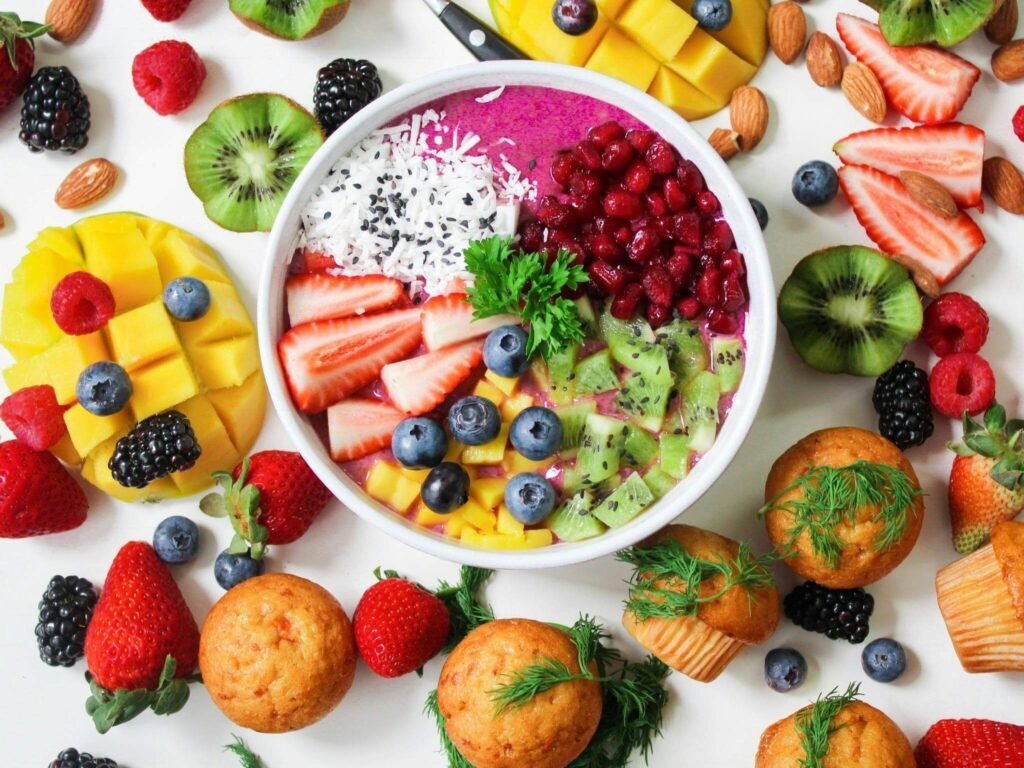Eating right isn’t just about looking good—it’s about feeling your best, living longer, and staying strong. Whether you’re in the USA or anywhere else in the world, The Ultimate Nutrition Guide: Science-Backed Tips for a Healthier Life is your trusted source for building a healthier lifestyle through real, evidence-based choices. This guide explores how nutrition impacts your body, mental health, and overall wellness, helping you make smarter decisions every day.
This isn’t just another blog post. It’s a complete guide filled with science-backed insights, expert nutrition advice, and simple tips to support your goals—whether you’re aiming for weight loss, more energy, sharper focus, or long-term disease prevention.
What Is Nutrition and Why It Matters in Everyday Life
Nutrition is the science of how your body uses food. Everything you eat breaks down into nutrients. These nutrients power your body and brain, help you heal, and keep your systems running smoothly. Without proper nutrition, your immune function weakens, energy drops, and even your mood can suffer.
Every day, your body needs a mix of carbohydrates, proteins, fats, vitamins and minerals, and water to stay healthy. Skipping meals or choosing poor-quality food can lead to poor concentration, tiredness, or even serious chronic diseases. Eating well every day matters more than you think.
The Science Behind Nutrition
Your body is like a machine. It needs the right fuel to function. Scientific research on nutrition shows that the body depends on six key types of nutrients: macronutrients (like carbs, fats, and protein) and micronutrients (like vitamins and minerals). Without these, your cells can’t repair themselves, your hormones won’t work right, and your mind can’t focus.By understanding the science behind food, this Ultimate Nutrition Guide helps you fuel your body better and avoid common mistakes.
How Nutrition Impacts Your Body and Mind
What you eat affects how you feel. A sugary breakfast may give a short burst of energy, but it can crash your blood sugar quickly. On the other hand, whole grains and omega-3 fatty acids help support steady energy and improve brain health. The right food choices help your body fight off infections, balance mood, and keep your heart strong.
Key Nutrients You Need Every Day
Your body needs these nutrients daily:
| Nutrient | Role in Body | Sources |
|---|---|---|
| Proteins | Builds muscles and tissues | Eggs, beans, fish |
| Carbohydrates | Main energy source | Rice, oats, fruits |
| Fats | Supports brain & hormones | Nuts, seeds, avocados |
| Vitamins | Supports organs and skin | Vegetables, citrus fruits |
| Minerals | Bone and nerve health | Leafy greens, dairy |
| Water | Keeps body hydrated | Water, fruits, soups |
How a Balanced Diet Prevents Chronic Illness
The Ultimate Nutrition Guide reveals how simple, daily food choices can lower your risk of chronic diseases like diabetes, cancer, and heart problems. A balanced diet rich in whole grains, vitamins and minerals, and healthy fats supports better blood sugar control, immune function, and long-term wellness.
A long-term healthy lifestyle starts with your plate. Good food habits now can prevent major problems later. And the best part? You don’t need to follow a strict or expensive plan—just eat real, fresh food most of the time.
Understanding Macronutrients and Micronutrients
Macronutrients include carbohydrates, proteins, fats—they give you energy. Micronutrients include vitamins and minerals—they keep your body systems in balance. Both are key to your daily nutrition.
Role in Preventing Heart Disease, Diabetes, and Cancer
Eating superfoods rich in antioxidants, omega-3 fatty acids, and whole grains can lower inflammation. This reduces the risk of chronic diseases. A diet full of fruits, vegetables, and fiber also helps with blood sugar control and lowers cholesterol.
Long-Term Benefits of Healthy Eating Habits
People who follow a balanced diet live longer, feel better, and have fewer hospital visits. Studies show a Mediterranean or plant-based eating style improves heart disease risk, digestion, and mental well-being.

Mental Health and Nutrition: The Overlooked Connection
Food affects your brain too. Eating right improves your mood, memory, and focus. People who eat more vegetables, whole foods, and healthy fats show better mental health outcomes. Poor diet links to anxiety, depression, and stress.
Foods That Boost Mood and Reduce Stress
Eating more of these helps:
- Fatty fish (rich in omega-3 fatty acids)
- Leafy greens
- Berries
- Nuts and seeds
- Dark chocolate
These help boost serotonin, reduce anxiety, and improve sleep.
The Gut-Brain Axis and Microbiome Health
There’s a strong link between your gut and your brain. A healthy gut supports clearer thinking and better mood. Fiber from whole grains and fermented foods like yogurt and kimchi support a strong gut lining and healthy bacteria.
Nutrition Strategies for Anxiety and Depression
Avoid sugar crashes. Eat regular meals rich in fiber, proteins, and healthy fats. Drink water and avoid skipping meals. These habits help balance mood and reduce symptoms of depression.
Busting Common Nutrition Myths Once and for All
There are too many nutrition myths online. Many are false or misleading. Let’s set the record straight with facts backed by scientific research on nutrition.
Myth #1: All Fats Are Bad
Not all fats are equal. Trans fats are harmful, but omega-3 fatty acids and unsaturated fats are essential for heart health and brain health.
Myth #2: Carbs Always Lead to Weight Gain
Complex carbs like whole grains and fruits are great for energy-boosting foods. Only refined carbs like white bread and soda should be limited.
Myth #3: You Must Take Supplements to Stay Healthy
Whole foods are better than pills. Only take supplements if a doctor advises you. Check out supplement reviews before buying anything.
Myth #4: Protein Is Only for Bodybuilders
Everyone needs proteins—kids, older adults, and even vegans. It supports healing, immunity, and strong muscles.
How to Build a Personalized, Healthy Eating Plan
Every person is different. A healthy meal plan for one may not work for another. Your body, lifestyle, culture, and taste all matter. Build a plan that fits you—not the other way around.
Start small. Make one healthy change at a time. Replace soda with water. Add a veggie to lunch. Over time, these become habits.
Step-by-Step Guide to Creating a Meal Plan
- Plan meals for the week
- Include carbohydrates, proteins, fats
- Add fruits and veggies to every plate
- Drink water with every meal
- Track how food makes you feel
Adapting Nutrition to Your Lifestyle and Goals
Busy schedule? Use frozen vegetables. Traveling often? Pack healthy snacks. Following diet and exercise routines? Adjust portions for workout days.
Tools and Apps for Easy Meal Tracking
Use apps like MyFitnessPal or Cronometer. These apps help track calories, nutrients, and even water intake.
Whole Foods vs. Processed Foods: Making the Right Choices
Whole foods are close to nature. They’re packed with nutrients, low in additives, and full of fiber. Processed foods often contain sugar, salt, and unhealthy fats.
Choosing whole foods supports your gut, skin, and brain. It also helps reduce your risk of chronic diseases and weight gain.
Benefits of Eating Whole Foods
They improve:
- Digestive health
- Immune function
- Mental well-being
- Heart disease risk
Ingredients to Avoid in Packaged Products
Look out for:
- High-fructose corn syrup
- Hydrogenated oils
- Artificial dyes
- Excess sodium
- Preservatives
Quick Healthy Swaps for Daily Meals
Swap white bread for whole grains. Choose fruit over candy. Cook meals at home instead of fast food.
Resources, Recipes, and Tools for Nutritional Success
Success starts with the right tools. Planning your meals and tracking your nutrients makes healthy eating easier.
You can also get inspired with healthy recipes and tools that work for your routine and budget.
Free Printables and Nutrition Trackers
You can find meal planners, hydration logs, and shopping checklists online. These help you stay organized and reduce stress around food.
Expert-Approved Recipes for Every Diet
Look for simple, tasty, plant-based eating ideas or high-protein meals. Try lentil soup, quinoa salads, or Greek yogurt parfaits.
Top Apps and Podcasts for Nutrition Knowledge
Listen to shows like The Doctor’s Kitchen or The Nutrition Diva. They provide weekly updates and expert nutrition advice.
FAQs: Everything You’ve Ever Wanted to Know About Nutrition
People often ask: “What’s the best diet?” or “How much should I eat?” Let’s answer those with simple facts.
What’s the Best Diet for Weight Loss?
Any diet that helps you stay full, eat fewer calories, and move more will help with weight loss. Focus on healthy eating, not quick fixes.
Should I Go Vegan or Keto?
Both have pros and cons. Plant-based eating helps the heart. Keto may help with fast weight loss. Choose what fits your body and values.
How Much Water Do I Really Need?
Most adults need 8–10 cups daily. More if you sweat, exercise, or live in a hot climate.
What’s the Truth About Intermittent Fasting?
It can help with blood sugar control and focus. But it’s not for everyone. Always ask your doctor first.
These are just a few questions answered in the Ultimate Nutrition Guide, which offers simple, science-backed insights for healthy living.
Conclusion: Make Nutrition a Daily Habit, Not a Chore
Choosing better food isn’t about following strict rules. It’s about building a stronger, happier you—step by step. With help from this Ultimate Nutrition Guide, you’re choosing a path toward a more vibrant, balanced, and confident future.
Remember, you don’t need to change everything overnight. Start by adding more whole grains, colorful vegetables, or omega-3 fatty acids to your meals. Prioritize mental well-being, move more, and drink enough water. A healthy lifestyle is about small, smart choices that stick. Trust in scientific research on nutrition, ignore harmful nutrition myths, and focus on what really fuels your body and mind.
Whether your goal is better digestive health, long-term disease prevention, or simply more energy each day, let this nutrition guide be your starting point. Eat well, live well, and thrive—because you deserve nothing less.
For more expert insights, healthy recipes, and science-based wellness tips, don’t forget to visit our main site and keep exploring the full range of content at PakistanCoverage.com.
Zainab Farooq is a dedicated reporter and celebrity wealth analyst with Pakistan Coverage, committed to bringing readers timely and accurate information across diverse topics. With a passion for storytelling and fact-based reporting, she covers everything from celebrity net worth insights and entertainment industry analysis to local Pakistani developments and global trends, ensuring readers stay informed about the stories that shape our world.




